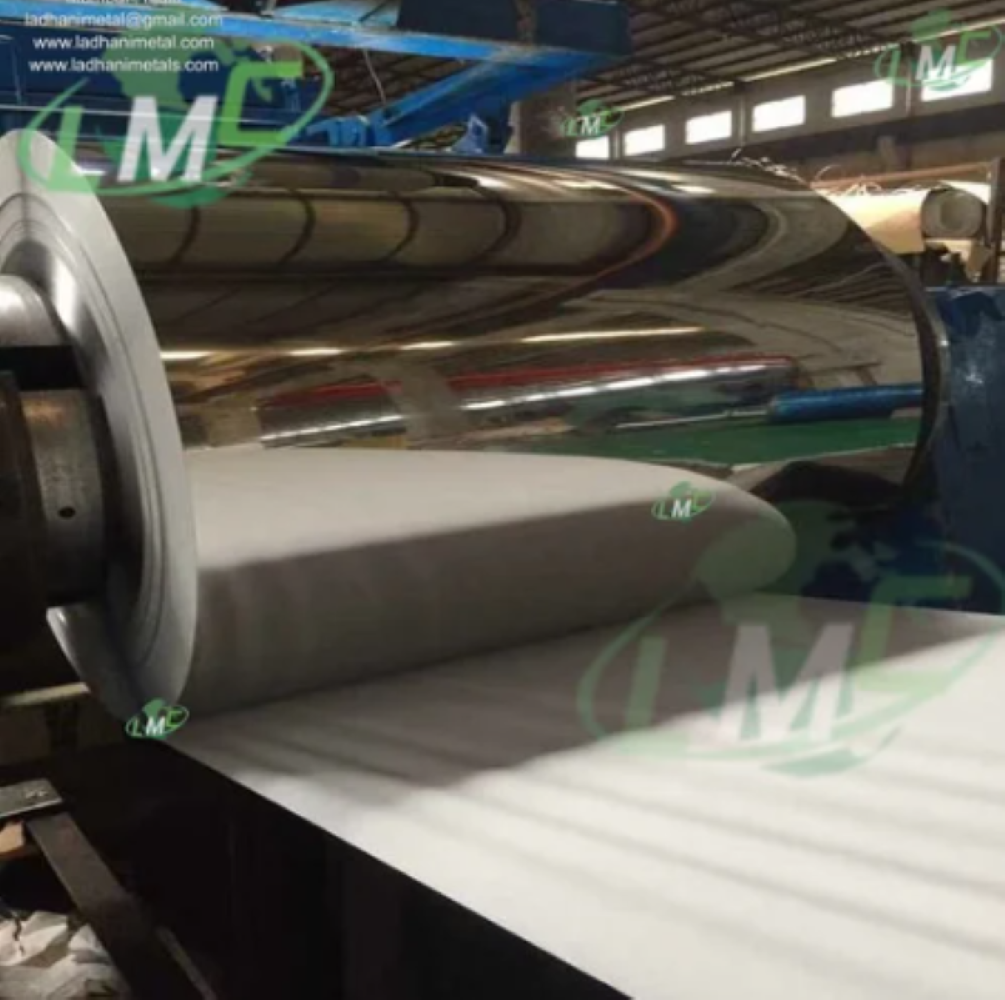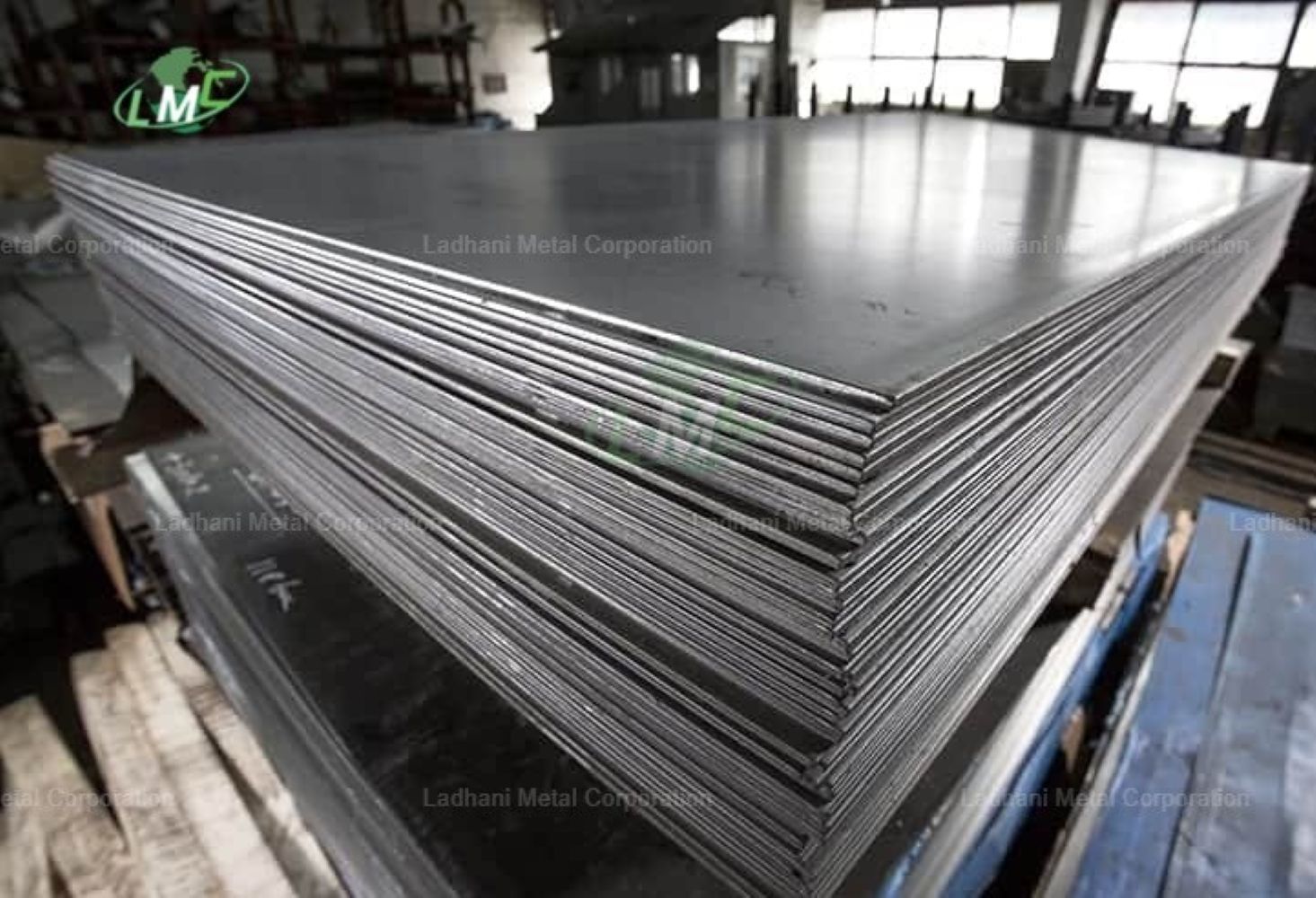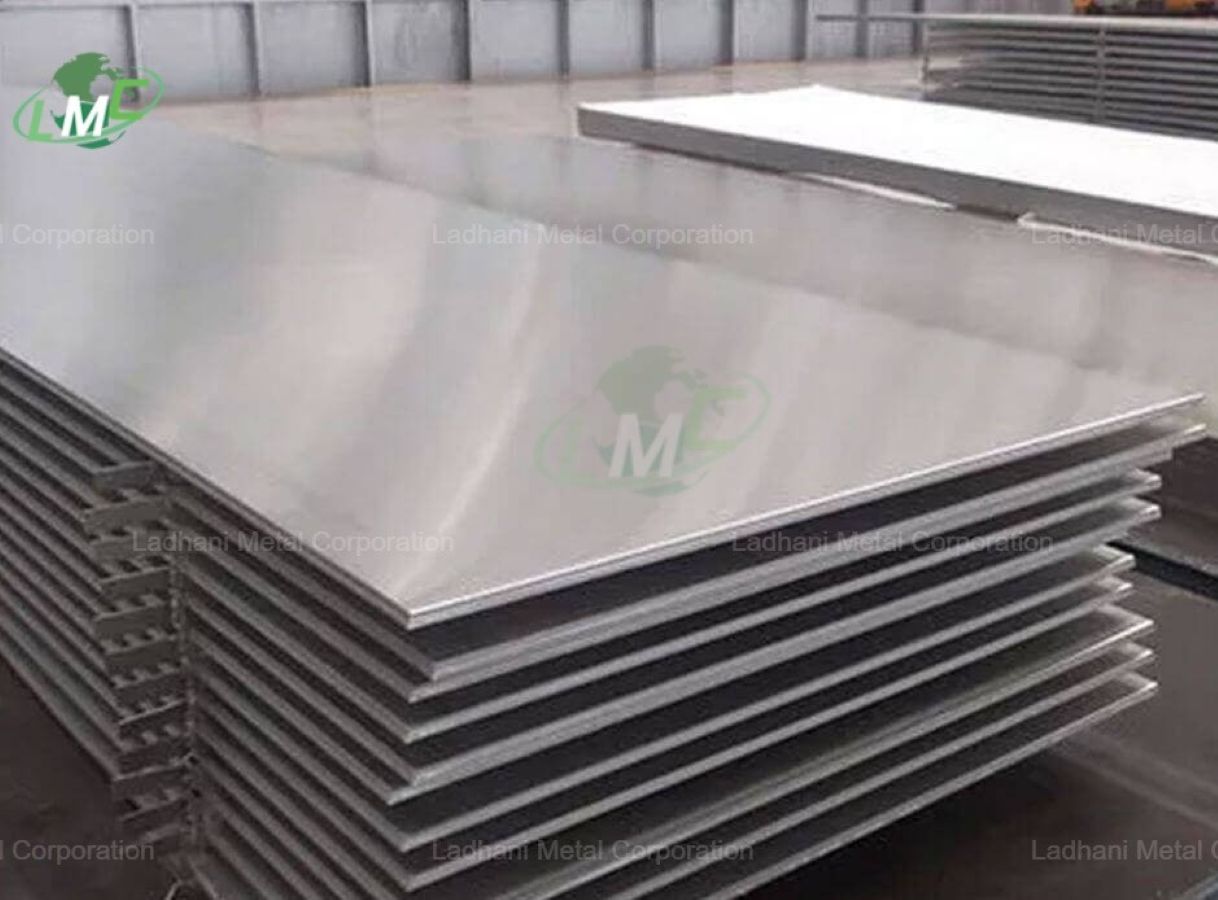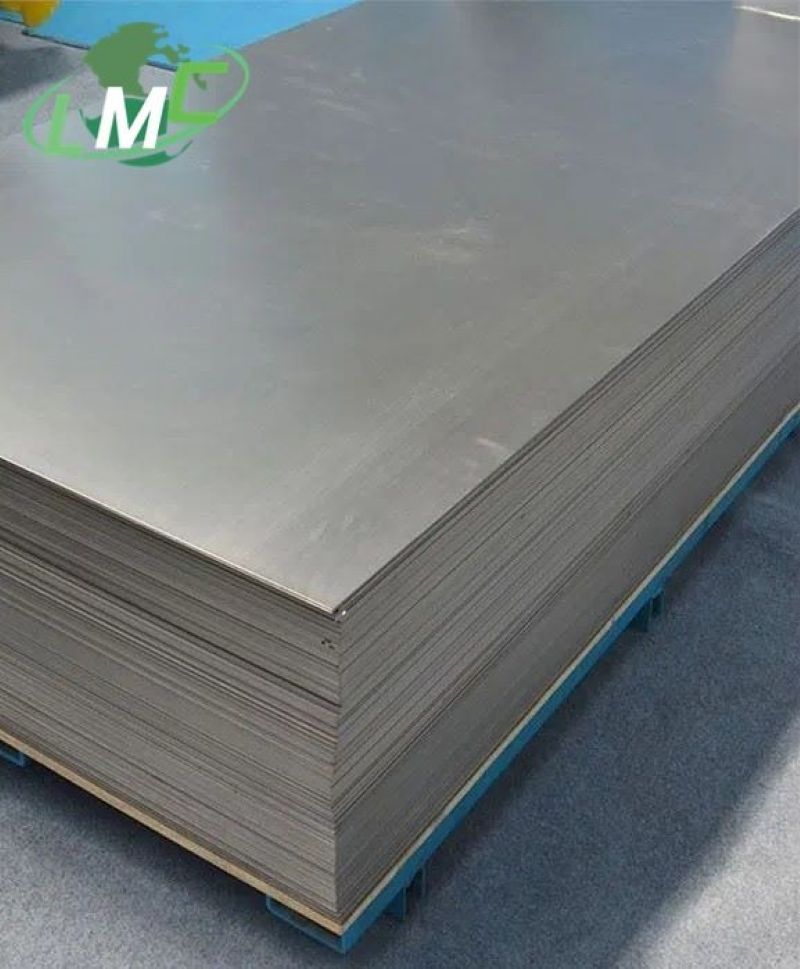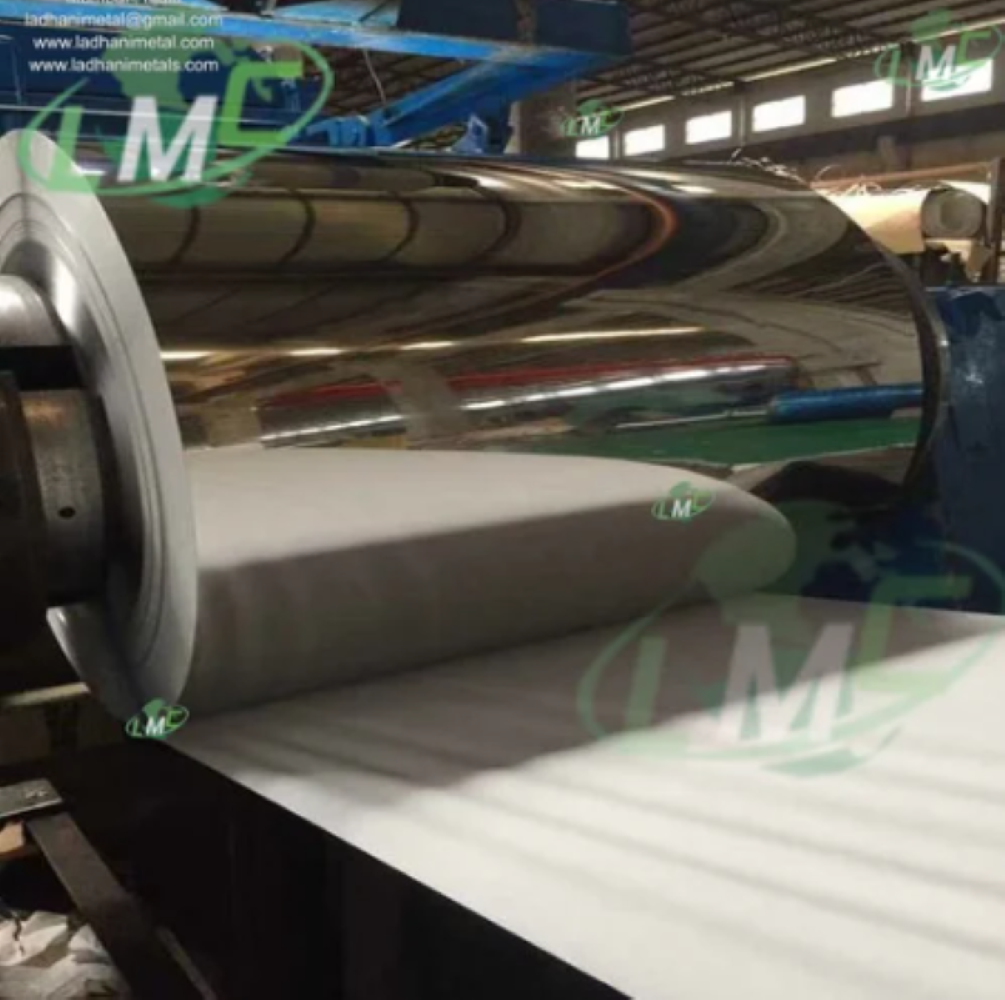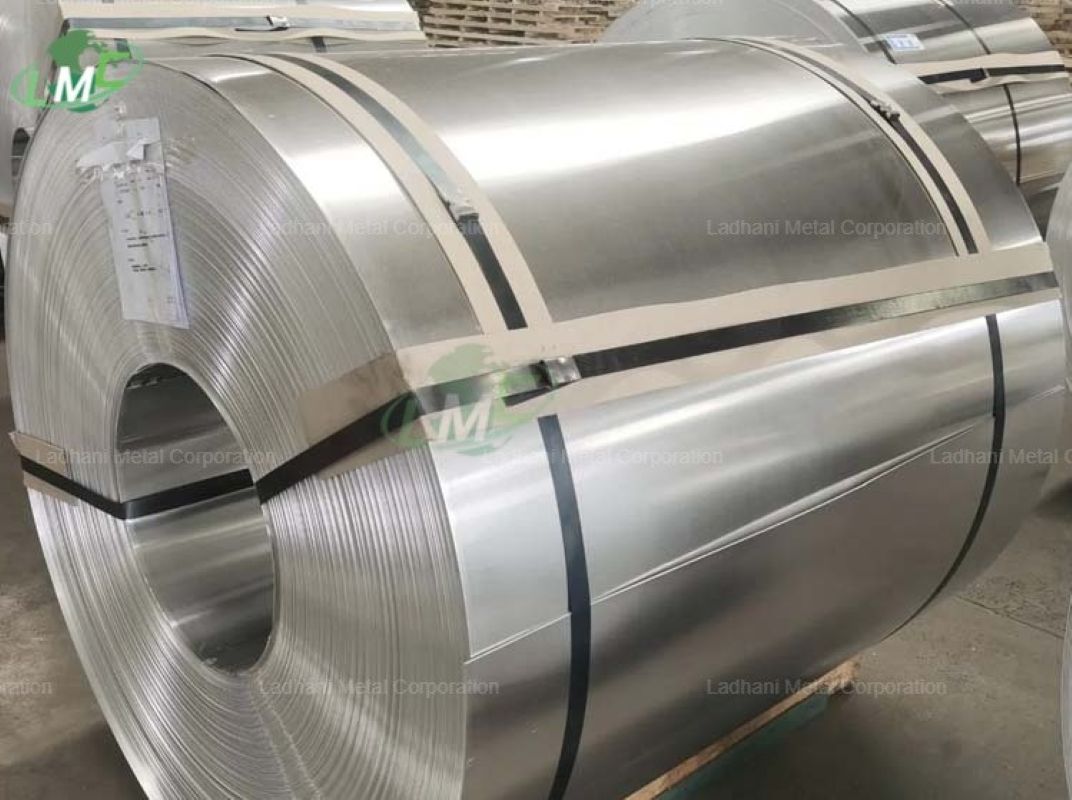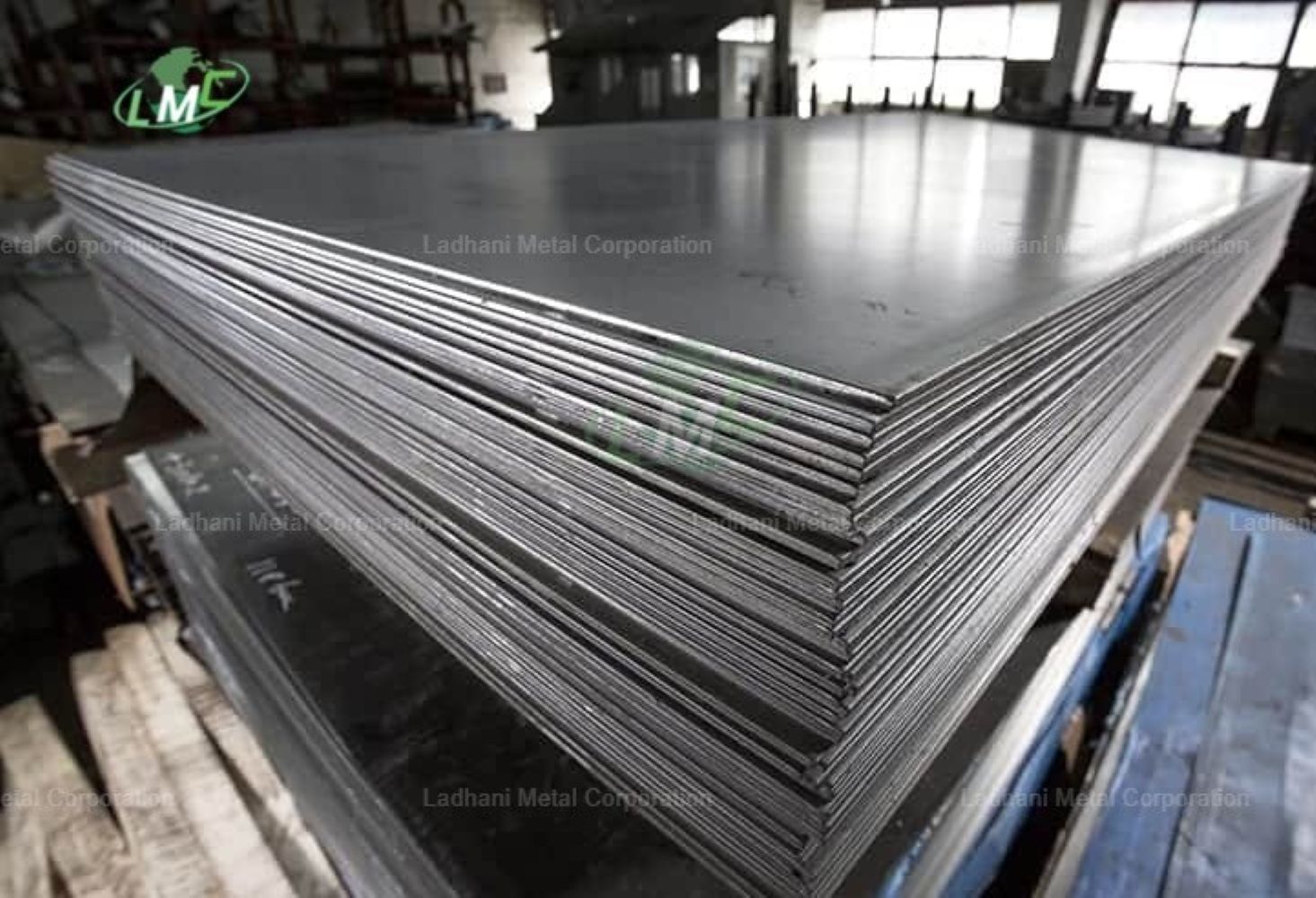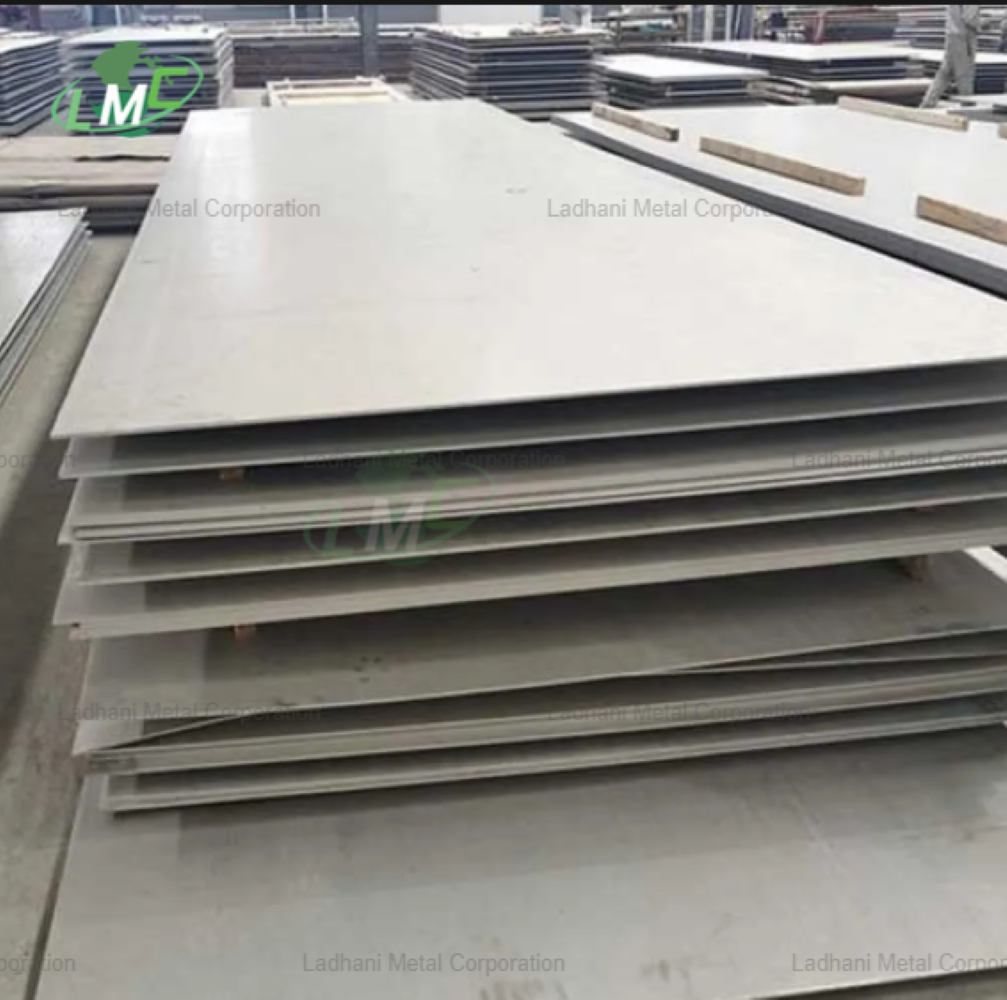IS 6911 SS Sheet, Plate & Coil
Ladhani Metal Corporation, a manufacturer, supplier, and exporter, offers stainless steel sheets, plates, and coils in grade X07Cr18Ni9 as per IS 6911 specifications. X07Cr18Ni9 is a widely used austenitic stainless steel grade, known for its excellent corrosion resistance, high strength, and outstanding formability. It is non-magnetic in the annealed condition and is one of the most versatile and commonly used stainless steels across industries.
Chemical Composition of X07Cr18Ni9 (as per IS 6911)
• Carbon (C): 0.07% max
• Manganese (Mn): 2.0% max
• Silicon (Si): 1.0% max
• Phosphorus (P): 0.045% max
• Sulphur (S): 0.030% max
• Chromium (Cr): 17.5% – 19.5%
• Nickel (Ni): 8.0% – 10.5%
Functions and Characteristics
• Excellent corrosion resistance in atmospheric and oxidizing environments
• Non-magnetic in the annealed condition, slightly magnetic when cold worked
• High toughness and ductility, even at cryogenic temperatures
• Excellent formability and weldability for complex fabrications
• Resists oxidation at elevated temperatures up to 870°C
• Hygienic, easy-to-clean surface suitable for food and pharmaceutical use
Applications
• Power Generation – Heat exchangers, condensers, and turbine components
• Oil and Gas – Offshore equipment, piping, and storage vessels
• Petrochemical Industry – Process units, reactors, and refinery equipment
• Fertilizer Plants – Tanks, vessels, and corrosion-resistant pipelines
• Chemical Industry – Reactors, process vessels, and storage tanks
• Marine Engineering – Ship components, seawater piping, and offshore structures
• Automotive Industry – Exhaust systems, trims, and fasteners
• Food Processing – Hygienic equipment, storage tanks, and processing machinery
• Construction – Architectural cladding, structural elements, and roofing systems
• General Engineering – Shafts, fasteners, machine parts, and household appliances
Available Forms
• Stainless steel sheets
• Stainless steel plates
• Stainless steel coils
Grades Available under IS 6911
Apart from X07Cr18Ni9, IS 6911 also covers a wide range of stainless steel grades, including X04Cr12, X07Cr17, X12Cr12, X20Cr13, X30Cr13, X40Cr13, X15Cr16Ni2, X108Cr17Mo, X10Cr17Mn6Ni4N2O, X07Cr11Mn12Ni4, X10Cr18Mn9Ni5, X30Cr17Ni7, X04Cr19Ni9, X02Cr19Ni10, X15Cr24Ni13, X20Cr25Ni20, X04Cr17Ni12Mo2, X02Cr17Ni12Mo2, X04Cr17Ni12Mo2Ti, X04Cr18Ni10Ti, X04Cr18Ni10Nb and other specified grades.
Conclusion
IS 6911 SS X07Cr18Ni9 sheets, plates, and coils offered by Ladhani Metal Corporation, a manufacturer, supplier, and exporter, combine corrosion resistance, strength, and versatility, making them ideal for use in industries ranging from construction to food processing. With availability in multiple grades as per IS 6911, we deliver stainless steel solutions that meet both domestic and international standards.
For inquiries or project requirements, contact Ladhani Metal Corporation.
#Mumbai #Delhi #Chennai #Kolkata #Hyderabad #Bangalore #Pune #Ahmedabad #Surat #Rajkot #Vadodara #Coimbatore #Jaipur #Nagpur #Indore #Ludhiana #Kanpur #Bhubaneswar #Rourkela #Visakhapatnam #Trichy #Kochi #Mangalore #Jamnagar #Bharuch #Vapi #Hazira #Ankleshwar #Durgapur #Jamshedpur #Raipur #Bilaspur #Faridabad #Noida #Gurgaon #Chandigarh #Lucknow #Bhopal #Patna #Guwahati #Agra #Varanasi #Meerut #Ghaziabad #Moradabad #Aligarh #Aurangabad #Kolhapur #Nashik #Solapur #Thane #Amravati #Satara #Sangli #Hubli #Belgaum #Davangere #Mysore #Erode #Salem #Madurai #Tirunelveli #Tuticorin #Hosur #Nellore #Warangal #Karimnagar #Nanded #Udaipur #Ajmer #Jodhpur #Kota #Alwar #Gwalior #Rewa #Jhansi #IS6911sheetmanufacturer #IS6911sheet supplier # IS6911sheetexporter #IS6911 #IS6911StainlessSteel #IS6911Sheet #IS6911Plate #IS6911Coil #IS6911Strip #IS6911Manufacturer #IS6911Supplier #IS6911Exporter #StainlessSteelIndia #StainlessSteelSheet #StainlessSteelPlate #StainlessSteelCoil #StainlessSteelStrip #SS304 #SS304L #SS316 #SS316L #X04Cr12 #X07Cr17 #X12Cr12 #X20Cr13 #X30Cr13 #X40Cr13 #X15Cr16Ni2 #X108Cr17Mo #X07Cr18Ni9 #X04Cr19Ni9 #X02Cr19Ni10 #X15Cr24Ni13 #X20Cr25Ni20 #X04Cr17Ni12Mo2 #X02Cr17Ni12Mo2 #X04Cr17Ni12Mo2Ti #X04Cr18Ni10Ti #X04Cr18Ni10Nb #StainlessSteelGrades #StainlessSteelManufacturer #StainlessSteelSupplier #StainlessSteelExporter #StainlessSteelStockist #IndustrialStainlessSteel #BoilerStainlessSteel #PetrochemicalStainlessSteel #ChemicalIndustryStainlessSteel #MarineStainlessSteel #HeatResistantSteel #CorrosionResistantSteel #SSSheetsPlatesCoils #LadhaniMetalCorporation
Send
Message


